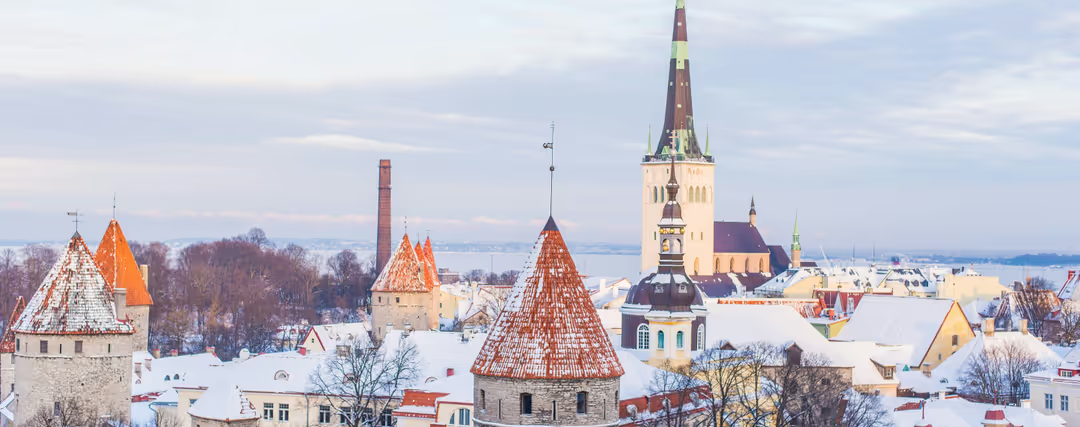

Are you going to do your Erasmus in Estonia? In this article, we tell you the most important things you need to know about this country! From the best cities to study into options and requirements for international students, to the best things to do in Estonia, information about the different accommodation alternatives available and the best Universities. Let's get to it!
With its combination of historic charm and modernity, several cities have become popular destinations for an Erasmus in Estonia. Tallinn, the capital, stands out as a top choice because of its captivating old town, a UNESCO World Heritage Site, and its lively atmosphere. Tartu, the second largest city, is known for its student atmosphere, cultural events and medieval architecture. Other cities, such as Pärnu, known for its beaches and recreational activities, are also attractive destinations.
Estonia has a rich history and a unique culture that combines Scandinavian, Germanic and Russian influences. Take advantage of your exchange to get to know this fascinating mix, participating in festivals and traditions, and visiting historical sites.
The "Land of Blue Forests" boasts unique natural beauty, from dense forests to more than 1,500 islands scattered in the Baltic Sea. During your stay, you’ll be able to explore unspoiled nature, national parks and breathtaking beaches.
Estonia is recognized worldwide for its innovative approach to technology and digital services. For this very reason, it’s a very good destination if you’re studying a related career, although you can also immerse yourself in this technological environment in your day-to-day life in the country.
Estonia attracts students from all over the world, which creates a multicultural environment where you can make international friendships and learn from diverse perspectives. This leads to most students using English as their preferred language of communication, so you’ll also be able to practice this language during your exchange.
There are plenty of things to do when studying in Estonia to enjoy your exchange to the fullest!
For the adventurers, the Baltic Pearl offers a wide variety of outdoor experiences. The island of Saaremaa is a paradise for nature lovers, with extensive beaches, national parks and ancient windmills. In addition, the forests and lakes of the Lahemaa National Park provide opportunities for hiking, biking and birdwatching.
For urbanites, Tallinn and Tartu are the gems. Tallinn, with its trendy cafes, designer boutiques and cultural events, is a place where history meets modernity. Tartu, as a university town, offers a lively student life and an urban scene with contemporary art galleries, cosy cafes and regular cultural events.
Do you consider yourself a foodie? In Estonia, you'll find a mix of tradition and modernity! Tallinn has a booming gastronomic scene, where restaurants fuse local ingredients with innovative techniques. You can also explore the local markets, such as the Balti Jaama Turg, for fresh produce and traditional Estonian dishes.
For those with an interest in history, there’s plenty to see. The Old Town of the capital, a UNESCO World Heritage Site, is a historical treasure trove of cobblestone streets, mediaeval walls and Hanseatic architecture. Furthermore, the Estonian National Museum in Tallinn provides an in-depth look at the country's history and culture, from the Stone Age to the present day. In addition, the Castle of Rakvere and the Fortress of Narva witness key historical events and offer a captivating glimpse into Estonia's past.
Find the ideal accommodation in your desired location